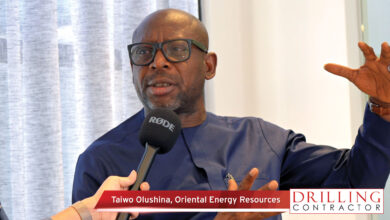PPSA director urges fast action to make pre-salt competitive on world stage
By Linda Hsieh, Managing Editor
As the PPSA looks to the future of pre-salt projects in Brazil, the group realizes that the long-term challenge is not simply to make pre-salt economically feasible. The challenge is to make it competitive against other sources of energy – from shales in North America to deepwater in West Africa and even to renewables. “There was a ten-fold reduction in the cost of solar power in the last 10 years, and more reductions will still come. Technologies are coming, so we are competing against all of those things,” Edson Nakagawa, PPSA Operation Director, said at the 2016 IADC International Deepwater Drilling Conference in Rio de Janeiro on 15 March.
Noting that he believes the window of opportunity for new developments in the pre-salt may be closing within the next decade, Mr Nakagawa outlined multiple actions that he believes must be taken immediately – by industry, by the Brazilian government and by the PPSA. For the industry, he urged work to continue on fast-tracking pre-salt developments, on increasing recovery rates, on further reducing costs and on investing in research, technology and innovation. On the part of the state, he said, “very important decisions need to be made very quickly. As you know, we are discussing a change to the production-sharing regime, removing the exclusivity for Petrobras to develop those pre-salt fields.” Adjustments to the local content policy are also under discussion, he said.
Further, the government recently announced an extension of the REPETRO customs framework, renewal of old concessions and the reopening of old fields. The potential for new bids in 2017 has also been announced, something that Mr Nakagawa called “very crucial.” The state is also working to finalize new policies and regulations for unitization and for the commercialization of pre-salt oil and gas.
“From the PPSA side, we are very much focused on building medium- and long-term strategy for monetization of the pre-salt resources,” Mr Nakagawa explained. The group is also supporting fast-track development initiatives and negotiating additional unitization agreements. Further, the PPSA continues to prepare for new production-sharing agreements and for the commercialization of the state’s share of oil and natural gas from the production-sharing and unitization areas. One short-term challenge being faced in the commercialization process is securing a policy from the Brazilian National Council for Energy Policy (CNPE) “for us to prepare the clear routes on how the whole process has to be managed,” he noted.
Mr Nakagawa also clarified the PPSA’s role in the commercialization efforts: The group does not directly or indirectly commercialize the state’s resources but only manages the commercialization contract with a trading agent, then monitors and audits the ensuing operations. “We aim at maximizing the economic results to the state from pre-salt activities,” Mr Nakagawa said. “We actually are not just to be a bureaucratic organization, but we are here to maximize the economic returns and work together with the consortium, not just on the management aspect but also on the technical aspects.”




